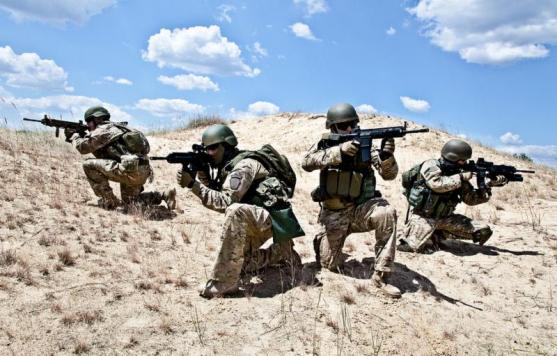Men need other men to do what God calls men to.
Deep, rigorous, joyful fellowship among Christian brothers is the great need of this wartime hour. The war effort doesn’t need more solitary soldiers trying to merely survive for their families. Isolated GIs and army-less generals pose no real threat. To advance, we need the strength that comes from numbers: “Though a man might prevail against one who is alone, two will withstand him — a threefold cord is not quickly broken” (Ecclesiastes 4:12).
Although many men have been trained to deny it, we desire friendship. When honesty prevails, grown men miss the days of sword fighting, tackle football in the backyard, and watching Karate Kid past bedtime. A strange ache groans through the cracks of our self-sufficiency.
And it’s not as though brotherhood cannot be found. We see examples of it in at least two places outside of the church: the military and gangs. Warfare, it seems, breeds a brotherhood foreign in peacetime. A brother is born for — and created in — adversity (Proverbs 17:17). The fires of combat meld men into brothers.
And here lies the great irony: Christian men fight in the greatest war imaginable, yet rarely experience such comradeship. We are deployed against a supernatural enemy, and as shells fly all around us, we split up, each to his own way. We battle for higher stakes than any other conflict the world has known, and we go for it solo. And as we individually charge the enemy’s machine-gun nest, we wonder why we routinely are cut down. Foolishness and pride, not courage and faith, lead us to storm the gates of hell alone.
“To advance, we need the strength that comes from numbers.”
As Christian men we sit on the white horse, generals of families and churches, while Satan snipes at us with special persistence. We are men under fire. And men under fire survive where a man under fire doesn’t. Our enemy has been implementing divide and conquer since Cain and Abel. Few of us know the immense privilege that Whitefield speaks of when he states,
It [is] an invaluable privilege to have a company of fellow soldiers continually about us, animating and exhorting each other to stand our ground, to keep our ranks, and manfully to follow the Captain of our Salvation, though it be through a sea of blood.
Why do we not band together as brothers in arms? Because we have forgotten that we are at war. We sail through life oblivious of the submarine’s torpedo — until we’ve been hit. Too few of our churches have blood brothers because too few of our churches know wartime bloodshed.


